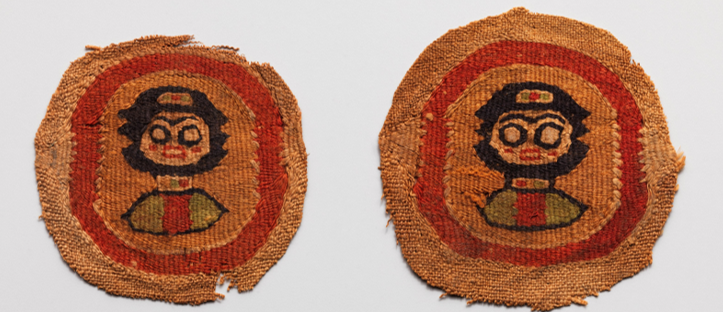Tabletop roleplaying games (TTRPGs) offer the player the illusion of infinite possibility. In videogames, however open the world, players are constrained to take the actions that have been built in by its designers and developers. By contrast, in TTRPGs the decisions you take are theoretically only limited by the imaginations of the players. This is part of the pleasure of the form, but also its peril.
For players, the unending plethora of alternatives can become overwhelming or result in defaulting to crass or unsatisfying tropes. For gamesmasters responsible for creating satisfying story options for players to choose, it would be impossible to properly prepare for a game if players really did set out to explore the infinity of possible actions they could take.
Different TTRPGs have different sets of mechanisms for keeping stories progressing in spite of the illusion of infinite choice. Most involve some mix of the following: the implied or explicit contract between players and gamesmasters to build a mutually satisfying narrative; the mechanics of games that encourage character progression down particular pre-determined pathways; the expectations of what a story is like and what does not belong.
In order to keep everybody on the same page, one of the central crutches used to marshal expectations about how decisions are to be made is the deployment of genre: such as Tolkienian fantasy (Dungeons & Dragons or Pathfinder at least in their core assumptions), postapocalyptic dystopia (Apocalypse World), steampunk (Blades in the Dark) or Lovecraftian Horror (Call of Cthulhu). By projecting a strongly flavoured genre, players and gamesmasters are given an implicit script for the kinds of stories that fit, the kinds of actions that should be taken, and the possible alternative outcomes that might emerge.
Genre is thus an interesting concept in TTRPGs, going beyond our understandings of how genre operates in the more-or-less passive process of reception in other arts and media. In TTRPGs, genre is not just a communication between creator and audience about what to expect allowing for satisfying build-up and consummation of expectation. In TTRPGs, genre is a key mode for structuring action and determining outcome. Players and gamesmasters in a game of Call of Cthulhu have an implicit contract that horrific scenes and desperate actions may occur. (Though of course every gaming table has its own rules and assumptions). The art, mechanics and and ethos of a D&D game are quite different. By contrast, while a heroic dash into a sea of foes might be an acceptable action in a D&D game, in Call of Cthulhu it is likely to end in dismemberment, madness, and, for a player who is not reading the generic conventions adroitly, dissatisfaction. While TTRPG rulebooks tend to stress player consent and agreement, not everything can be pre-agreed, and so genre supplies a set of codes that allow for decisions to be made without paralysis, and to allow expectations to be met or subverted in a satisfying way.
History as genre
What about history? Is history a genre in games? Obviously, if we’re talking about historical fiction, this intersects with multiple different subgenres, including fictionalisations of the medieval in D&D style heroic fantasy, or more clearly historical settings like those of Call of Cthulhu, which merely inject Lovecraftian monsters into an otherwise recognizable early 20th century.
But I think that the very craft of the professional historian can operate in a way that is something akin to genre. This is something I’ve been thinking a lot about, because I am currently participating in an experiment. I’m part of “Dice on the Nile” a group of active research historians (Jennifer Cromwell, Alon Dar, Grzegorz Ochala and Eline Scheerlinck) who have been roleplaying our way through a series of adventures in a setting related to our research: 8th century Egypt, a world in which the Hellenistic and Roman influences of late antiquity mingled with the new forms brought by the Arab-Muslim rulers in the century following their conquest.
Respectively, they play a female monastic with healing skills; a demobilized Arab soldier who has settled down in the delta with his Coptic-speaking wife; a pious scion of the Nubian royal house, now exiled due to political misfortune; and a wealthy Coptic-speaking woman, a lover of music and poetry. I have been acting as gamesmaster; providing scenarios, and adjudicating the results of their character choices.
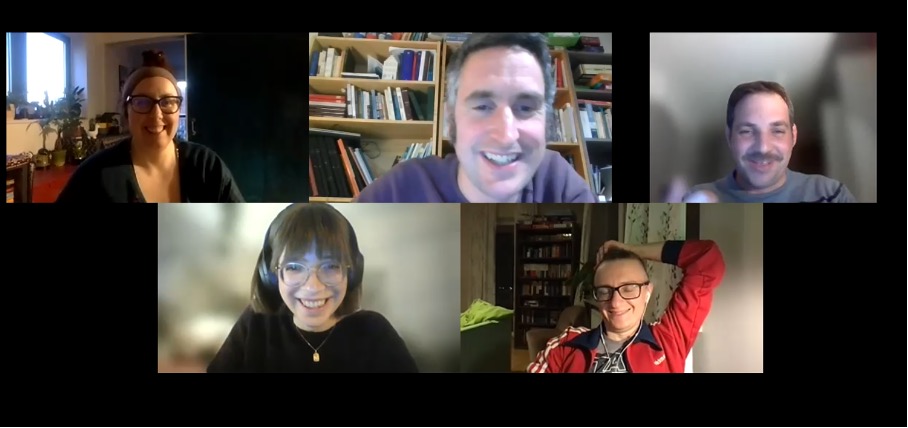
We have been using the system of D&D 5th edition but we employ only those elements that we have decided fit in the historical world familiar to us from our sources. However, this is not realism. Rather we aim to reflect the thought world of contemporary sources, from the levitating monks of late antique Christian hagiography to the talismans and curses of Coptic magical texts on papyri and ostraca; to the theories of spontaneous generation of Galenic science in Arabic.
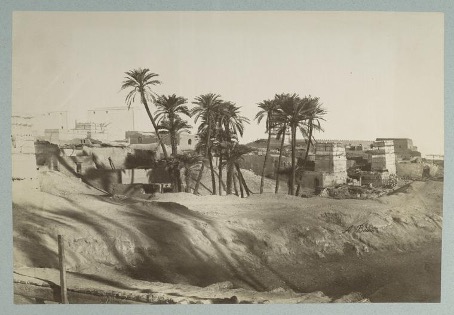
Roleplaying as historians in a historical setting dramatically transforms the experience of play. For it shifts our shared expectations about what might happen away from the narrative expectations of a particular genre (heroic fantasy, for example) towards a set of expectations based on our assessment of historical plausibility emerging from our engagement with our own sources (Coptic for Jenny and Eline; Coptic and Old Nubian for Grzegorz, and Arabic for Alon and I). This means that the burden of worldbuilding, usually borne largely by the gamesmaster, is distributed more evenly among the players. Storytelling in TTRPGs is typically collaborative, but in a peer group of historians, each of us filter personal assessments of the findings of the broader community of research historians and channel this into the game. As the characters travel up the Nile, for example, their encounters have acted as a series of thought experiments about how gender might have affected personal agency in taking decisions and acting in public spaces.
Decision paralysis
There is something at once stressful and liberating in playing in a historical world as a historian. While it acts as a playground for the imagination, it is not escapism as playing in a fantasy world, or for that matter in a historical setting which we know less about or have less professional responsibility for.
Thinking about historical fact can sometimes increase the tendency for paralysis. I remember at least one session in which I frittered away most of my prep time trawling for articles that might synthesise the piecemeal evidence from papyri and literary texts into an intelligible exchange rate between gold, silver, and copper coins. In the end, I had to delay the start time of our session to properly prepare myself for the things that would actually affect play. For the players, the everyday decisions of any medieval people are nearly impossible to access. When interacting with a historical environment, we are constantly facing a multitude of basic matters for which information is scarce: did people sit on chairs while eating their meals? What would the status of a Nubian nobleman be in Islamic Egypt? How would people treat him? With respect? With racial prejudice? How much does a boat trip up the Nile cost? Where would travellers spend the night? Would a member of the clergy, a nun or a monk, get special perks when they travel? How much money would people have to carry around with them? How would our the socially, religiously, and ethnically mixed party interact with each other? How does a female monastic react to the use of magical talismans or curses? Does she see this as a regular part of life, or a dangerous aberration?
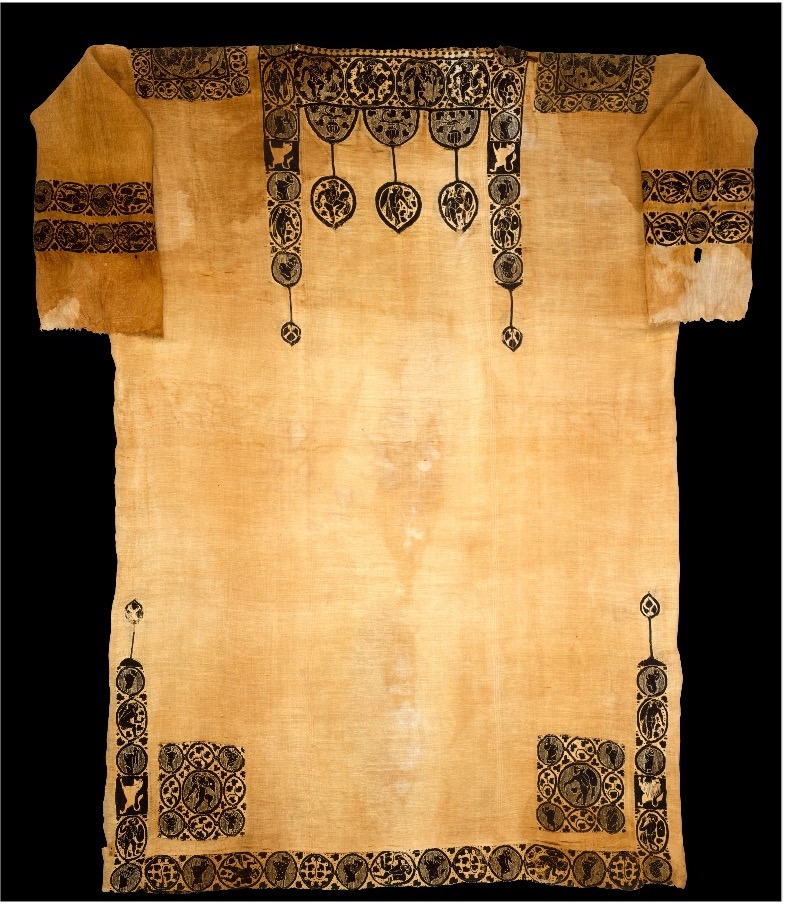
Decision defaulting
At some point, the amount of information required to make any decision becomes overwhelming, and players have to go ahead and just make a decision – any decision – or abandon the project of playing a TTRPG. Decision-making then reverts to a set of defaults, some of which will be structured by our previous research histories, and no doubt much will be structured by other aspects of our personalities and experiences: our sense of agency, morality, aesthetics of narrative, fun, the plot of the last film we watched, and so on. But while you have to move ahead in the game, decisions can be discussed and reconsidered later. This can be liberating. The pace of play is too fast to fully consider all questions encountered. Instead a decision is forced and we have to live with the alternative path picked. These decisions then become food for thought and inspire us to dig around in the sources after our play sessions, or to rethink what we already know, and to deploy this more consciously in future sessions. This means that character development is a feedback loop with something beyond the game setting: with the output of the research community.
By choosing D&D as our system for resolving conflict and the outcomes of decisions, we are interacting with the genre of a heroic fantasy game. However, our historians’ sensibilities act as a self-imposed set of restrictions that dissuade the players from wading into combat on a drop of a hat; or using magic in public; or insulting a government official. These aspects are intrinsically at odds with the combat and treasure-gathering orientation baked into D&D as a game and a subculture, which famously has the potential danger of dissolving character agency into the practice of the “murder hobo.”
A sense of historical plausibility replaces genre as the major set of expectations and lets the generic implications of D&D itself subside into something like a residual genre, while the individual and collective efforts of the historians emerge as a new guide to choosing between alternative courses of action. Choosing what to do in a game, is admittedly very different from the production of research, but one which also asks for a process of selection and deployment of evidence in context. And forcing ourselves to play through a string of decisions with consequences, highlights that even historical research is must be affected by the cognitive effects of narrative and genre on one’s assessment of historical sources. So roleplaying could open possibilities for auto-ethnographic reflection on the intellectual and narrative deep structures that precondition a historian’s process of decision making in the game. But that’s another story.
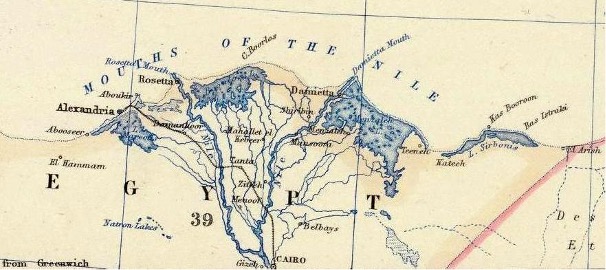
Dr Edmund Hayes is a postdoctoral researcher at Radboud University, Nijmegen. He works on the history of medieval Islam and the Middle East, with a particular interest in early Shiʿi group formation, and water history. He acts as gamesmaster for “Dice on the Nile,” in which a group of historians engage in imaginative history by roleplaying through a series of adventures set in 8th century Egypt.
